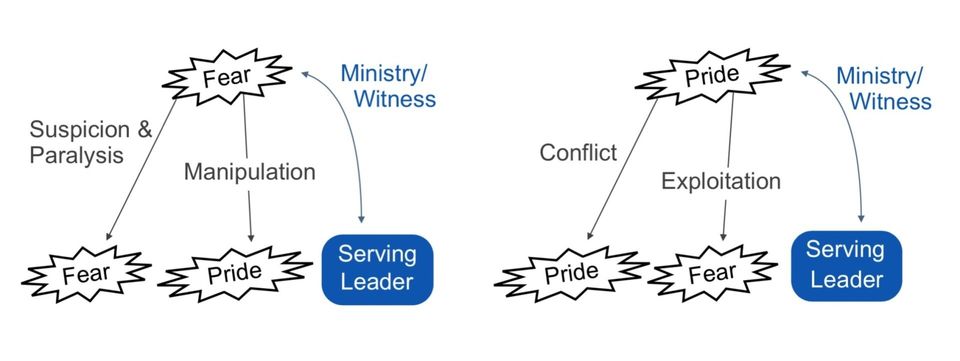How Pride and Fear Affect Leader-Follower Relationships (Part 1)
Productive relationships occur when servant-hearted leaders and servant-hearted followers engage each other in an atmosphere of mutual service and trust instead of pride and fear. Philippians 2:3-4 exhorts us to “Do nothing out of selfish ambition or vain conceit. Rather, in humility value others above yourselves, not looking to your own interests but each of you to the interests of the others.”
A leader who fears loss of position and a follower afraid of failure engage in a relationship of suspicion and paralysis, instead of trust and cooperation. To them, 1 John 4:18 offers this perspective: “There is no fear in love. But perfect love drives out fear, because fear has to do with punishment. The one who fears is not made perfect in love.”
When an insecure leader and a prideful follower engage each other, manipulation on the part of the follower is the likely result. A serving follower responds to the insecurities of a fearful leader with humility and respect, offering to help in any way possible. With a fearful follower, a serving leader remains patient and reassuring; praising honest effort.
When a leader and follower bring pride into a relationship the result is conflict/competition (see Proverbs 13:10). A proud leader will often take advantage of or exploit fearful followers (see Matthew 23:13-15).
When facing prideful leaders, servant-hearted followers are willing to risk negative responses in order to uphold their principles and live by their values. With prideful followers, serving leaders model humility and strength of purpose and are willing to enforce standards and withstand challenges to their leadership.
[Next week we will look further at how serving leaders respond to fearful and prideful people.]














